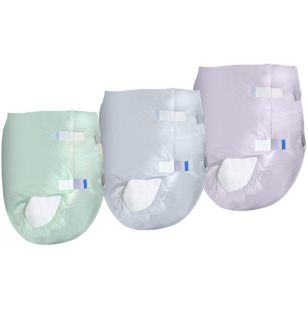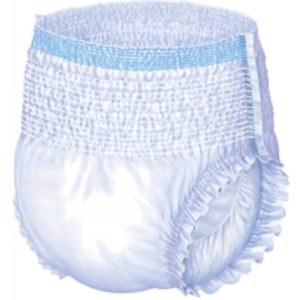A caregiver is a person, either a professional or a close relative, who looks after a child, elderly person, invalid, or any other person who is disabled or recovering from a major illness. A large number of professionals and nurses devote their lives to look after people in need, providing them with the care they need and assisting them to fulfill basic requirements of day-to-day life. Caregivers can be paid or unpaid depending on their choice and preferences.
Taking care of someone is not an easy task and health care providers, who care for people with chronic conditions often feel stressed. They have to stay alert and ready 24 / 7. By doing so, they often get stressed out seeing especially when they see the person they care for struggling and suffering. Hence, “Even caregivers need care sometimes”. The stress that a caregiver experience is brought on by emotional and physical tension.
Signs of stress in caregivers
- Feeling tired and exhausted
- Anxiety
- Sleep deprivation
- Depression
- Lack of interest
- Aggravated health problems
- Anger issue
- Headaches
- Abnormal weight
- Drinking and smoking habits
- Neglecting responsibility
- Impatient and Irritability
- Demotivation and negative thoughts
- Hopelessness
How to manage stress in caregivers
Self-care is the only way you can get out of your prevailing state of mind. The stress may seem too big and difficult to handle but there is always a ray of hope you can find if you want to. The stress a caregiver feels comes from the feeling of being overwhelmed by the responsibility that they take on themselves.
It is perfectly normal for a caregiver to feel stressed since they are also human beings who have sentiments and feel low sometimes while taking care of others. However, it is important to be aware of your stress levels and to try and find the help and support you need to manage stress.
Here are some tips that can help you to manage stress while providing care:
1. Write a journal
Instead of thinking about the challenges you will face in the future, focus on the task at hand. When you live in the present, you can prevent the accumulation of negative emotions. Writing a journal daily is a good way to clear your mind and serves as a canvas on which you can spill your thoughts.
Try to write down a list of things you want to do in a whole day and plan accordingly. Writing helps to reduce stress and to keeps your ideas and thoughts intact on paper.
2. Appreciate and pamper yourself
If you think someone else would come to cheer you up, you are wrong. Only you can pamper yourself. So, start noticing good traits in yourself and appreciate them.
Ever too often, health workers or caregivers focus on things that they did not do well. However, they should remember everything that they have done well. It would help them feel better. Helping yourself to stay strong helps you to cope up with your depression and weaknesses.
3. Take some time out for yourself
Caregivers who work outside the home should consider taking some days off. If you feel like a lot of pressure, a break from work can help you to improve your mental state. While on break indulge in activities that provide relief. A massage can be great for relaxation. You can also try various activities like juggling, painting, pottery, dancing, photography; any hobby would be a great start to keep yourself distracted from your core job. While on a break, give yourself priority above anyone else.
4. Enjoy small moments
While taking care of others we forget many small moments that may be enjoyable and happy. Enjoy every small and big moment; doing this will help you manage physical and emotional distress.
Get yourself some flowers, gifts or other things you may have wanted to buy for a long time, and then cherish every bit of it.
5. Talk to closest people in your life
Healthcare professionals tend to put their needs after everyone else’s. Helping patients or family members does not mean that you have to give up all your activities and relationships. Contact your friends and other people who are close and important to you in life. Remember that people who are socially connected feel less stress in life. If you feel that you are alone and in need of some emotional support, talk to your family and friends.
6. Share your feelings
Do not bottle up your feelings inside you. Share them with others to get rid of the stress. Expressing thoughts and feelings can help to prevent mental tension. Communication can heal any injury, irrespective of whether it is physical or mental. When we talk to someone we trust it reduces the burden and stress in our mind.
7. Join laughter therapy
Laughter is a natural response in humans and can be a great way to eliminate stress. There are many laughter clubs and therapy sessions available in every city. You can also watch stand up comedies on YouTube or other platforms; although this may not work as a long-term stress management solution nevertheless a dose of comedy is good for refreshing your mood for a day or two.
8. Listen to good music
Music can lift your mood and set you in some other zone, completely different and relaxing from the current scenario. Set a playlist and keep humming whenever you feel like giving up.
You can also play podcasts or listen to audiobooks at work. Doing so provides peace of mind at times when work may feel like it is backbreaking. Music helps to induce a meditative state and helps the mind to focus.
9. Exercise and yoga
It is a proven fact that regular exercise alleviates the symptoms of depression and promotes better sleep, which is also a factor in good self-management.
Caregivers also lose their cool and get annoyed sometimes. This makes their anger management poor and uncontrollable. Yoga helps a person to concentrate on important and relevant stuff and helps in the release of negativity. Use Adult Briefs while doing yoga and exercises to avoid leakages.

10. Call for help
You would feel much better and relaxed after a consultation with a doctor or general physician. Tell them about the symptoms of stress and illness that you are facing. They can provide you with advice that would help you overcome your anxiety disorders and physical inactivity.



